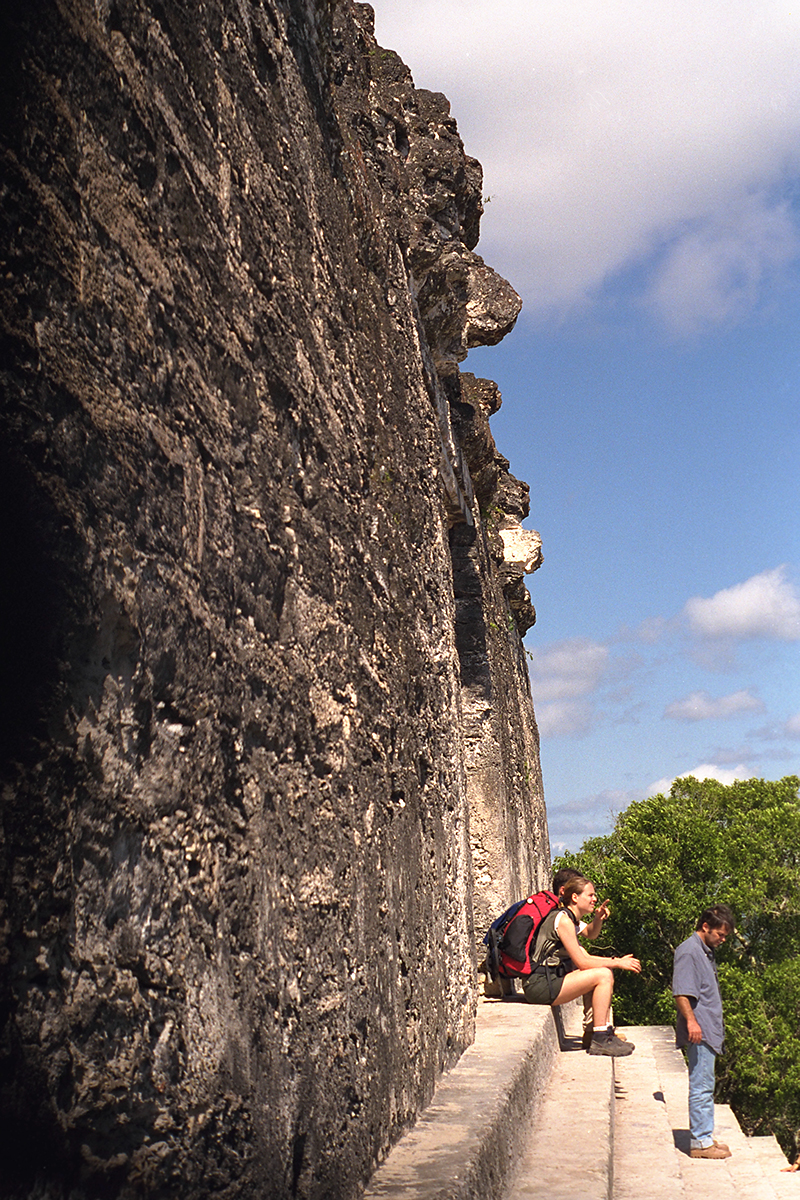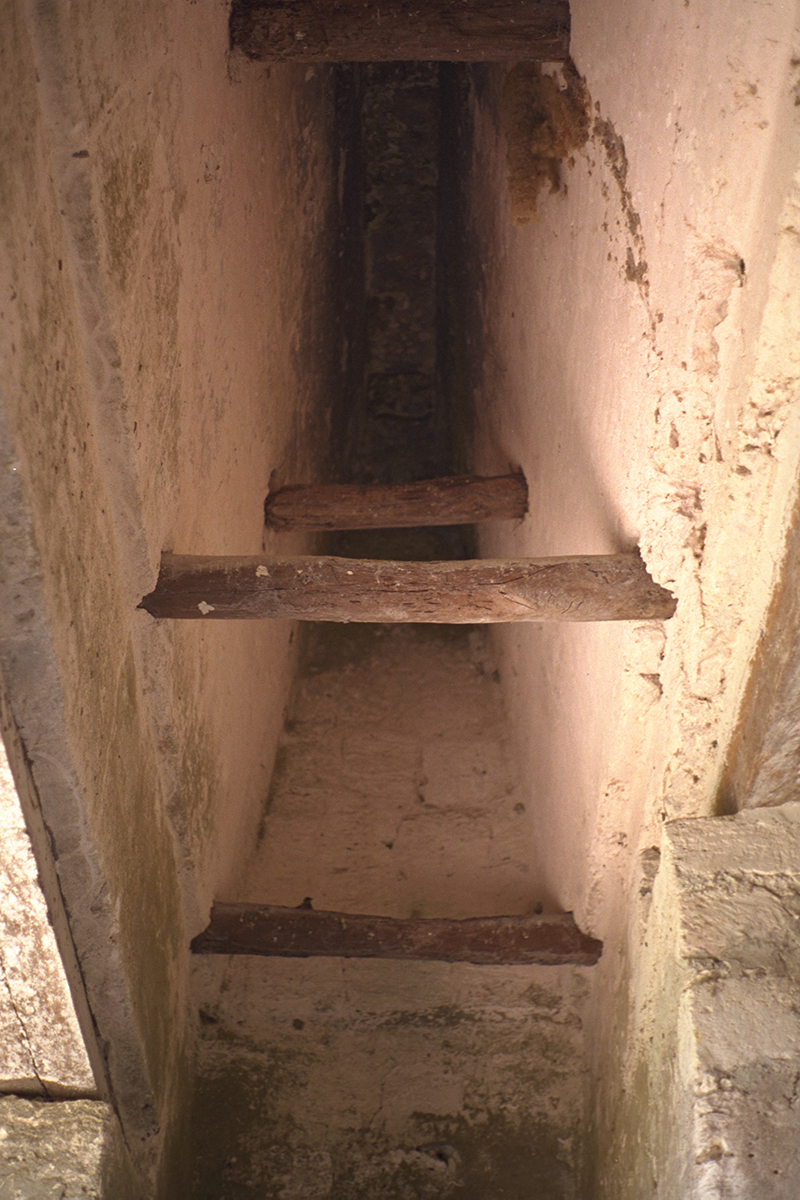Sunrise view from Temple IV

Photo courtesy of our friend and fearless climber, Jeff Purcell
The Peten contains the most ancient Classic Maya sites. Their form is best described as island cities or archipelago cities, consisting of many groups of platforms and buildings on knolls and shoulders of hilly land rising above the surrounding swamps, which may have been lakes or water-holes in antiquity.
Tikal has nine groups of courts and plazas, separated by ravines but connected by causeways and ramps. The free-standing pyramid was the dominant form...used by Maya architects.
George Kubler, The Art & Architecture of Ancient America, p. 207
Temple IV was built in AD 743

Photo courtesy of Jeff Purcell
Temple IV, facing east, stands 212 feet from the base of the platform supporting its pyramid to the top of its roof comb, the highest standing aboriginal New World structure.
Vaulted doorway to sanctuary

Photo courtesy of Jeff Purcell
A beautiful lintel once spanned the doorway of the inner chamber of this temple (left on photo) but is now in the Museum für Völkerkunde, Basel, Switzerland, where it was taken in the last century.
The lintel was was commissioned to celebrate Yik'in's victory over El Perú in 743 AD. and was carved from sapodilla wood. A full page photo of it is found on page 46 of William Coe's fascinating "Tikal: Ten Years of Study of a Maya Ruins in the Lowlands of Guatemala" in Penn Museum's Expedition Magazine.
Unbelievably massive...

Photo courtesy of Jeff Purcell
It is estimated that some 250,000 cubic yards of construction material have been incorporated in Temple IV and its supporting platform.
Coe, Tikal: A Handbook of the Ancient Maya Ruins, p. 80
Temple IV seen from below

Final glance back at Temple IV

Coatimundi play at foot of Temple IV
